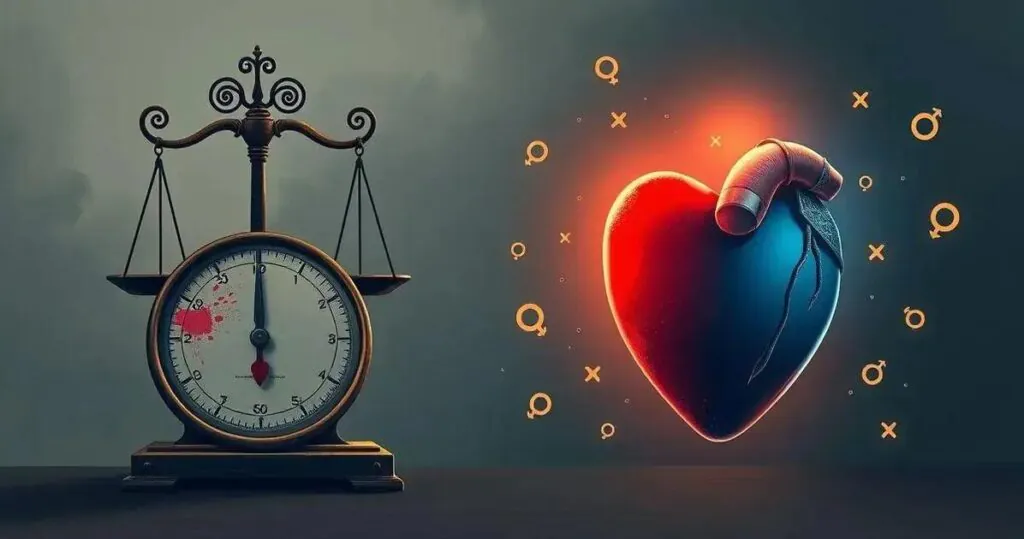Obesity can significantly contribute to erectile dysfunction by affecting blood circulation, hormonal balance, and mental health. Managing weight through a balanced diet, regular exercise, and professional support can improve sexual health and overall well-being.
Obesity and erectile dysfunction: what’s the connection? This question is vital for many men facing challenges in their sexual health. Research shows a strong link between excess weight and issues like erectile dysfunction. It’s essential to understand how obesity affects both the body and the mind, leading to a cycle of frustration and decreased self-esteem. In this post, we’ll explore the factors that contribute to these conditions, discuss management strategies, and highlight the importance of seeking help from healthcare professionals.
Understanding Obesity
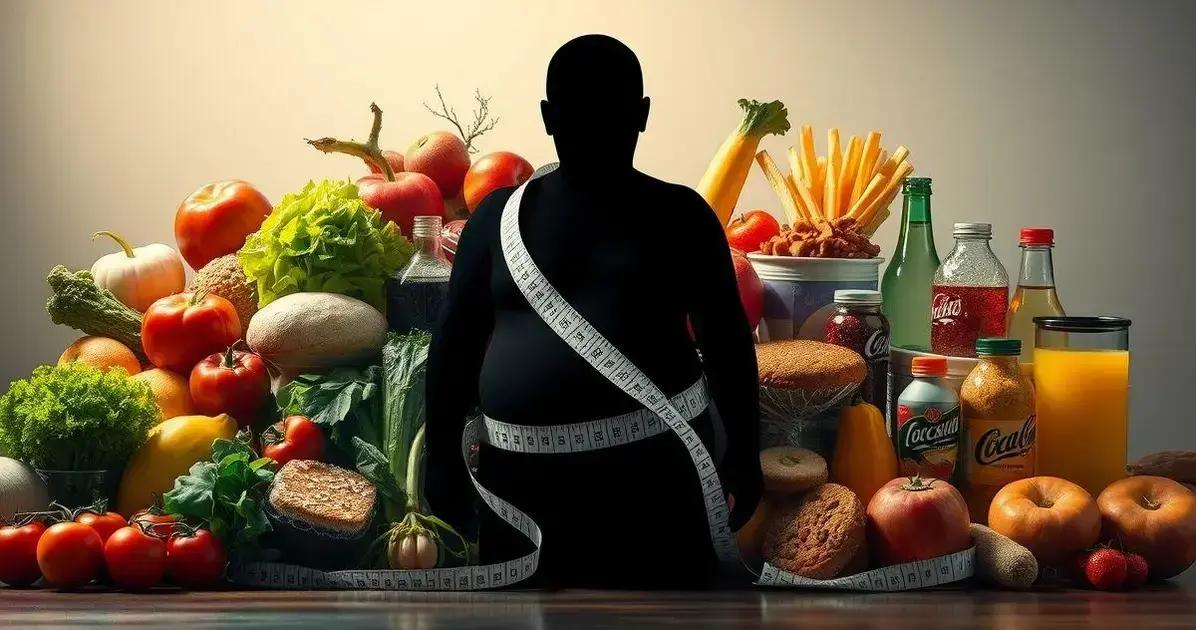
Understanding obesity is crucial for recognizing its effects on health. Obesity is defined as having an excess of body fat that can negatively impact health. It is often measured using the body mass index (BMI), which calculates weight in relation to height. A BMI of 30 or more indicates obesity.
Factors contributing to obesity include genetics, lifestyle choices, and environmental influences. Eating high-calorie foods and living a sedentary lifestyle can increase the risk of becoming obese. Social factors, such as access to healthy food and safe places to exercise, also play a significant role.
Obesity is not just a physical condition; it can affect mental health as well. Many individuals struggle with self-esteem and body image issues due to societal pressures. This can create a vicious cycle where low self-confidence leads to further weight gain.
Understanding the complexities of obesity helps to highlight the need for effective interventions. Addressing obesity often requires a combination of lifestyle changes, support systems, and at times, medical intervention. Educating ourselves about obesity enables better choices for health and well-being.
How Obesity Causes Erectile Dysfunction
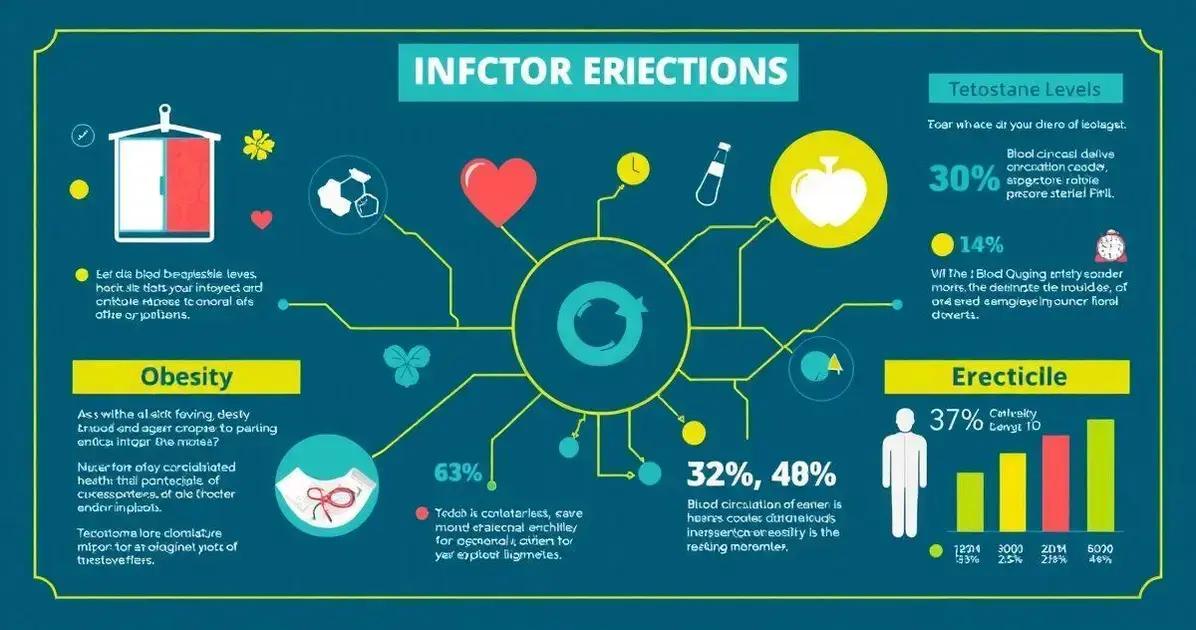
How obesity causes erectile dysfunction involves several physical and psychological factors. Obesity can lead to poor blood circulation, which is crucial for achieving and maintaining an erection. Excess body fat especially around the abdomen can restrict blood flow and make it harder to perform sexually.
Moreover, obesity increases the risk of developing conditions such as diabetes and hypertension. Both of these conditions can damage nerves and blood vessels that are vital for sexual arousal and function. Men with obesity may have a higher likelihood of experiencing these issues, making erectile dysfunction more prevalent.
The hormonal balance in the body is another important factor. Obesity can lead to lower levels of testosterone, a hormone that plays a key role in sexual desire and performance. When testosterone levels drop, it can impact libido and cause difficulties in achieving erections.
Mental health is also closely tied to obesity and erectile dysfunction. Men who feel ashamed or embarrassed about their weight may experience anxiety or depression, both of which can further complicate sexual performance and satisfaction. Addressing obesity can improve not only physical health but also mental well-being.
The Psychological Impact of Obesity
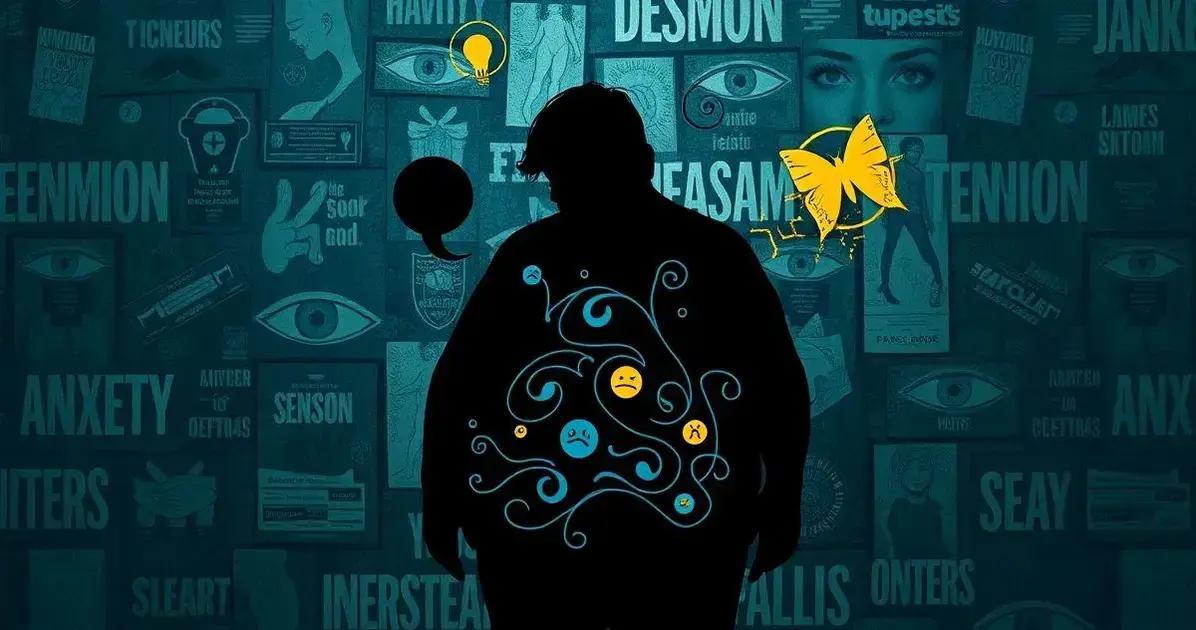
The psychological impact of obesity on individuals can be significant and far-reaching. Many people who struggle with obesity experience feelings of shame, guilt, and embarrassment about their weight. These feelings can lead to low self-esteem and body image issues, making it hard for them to feel confident and secure.
The societal pressure to conform to certain beauty standards can intensify these feelings. Individuals with obesity often face stigma and discrimination, which can further affect their mental health. This stigma can lead to social isolation, making it harder for them to seek help or support.
Anxiety and depression are also common among those with obesity. The struggle with weight can create a cycle of negative emotions that impacts relationships, work, and daily life. These mental health issues can exacerbate the physical effects of obesity, leading to further weight gain and related health problems.
Understanding the psychological aspects of obesity is crucial for effective treatment. Addressing mental health, alongside physical health, can lead to better outcomes. Support groups, counseling, and therapy can help individuals cope with their feelings and improve their overall well-being.
Tips for Managing Weight to Improve Sexual Health
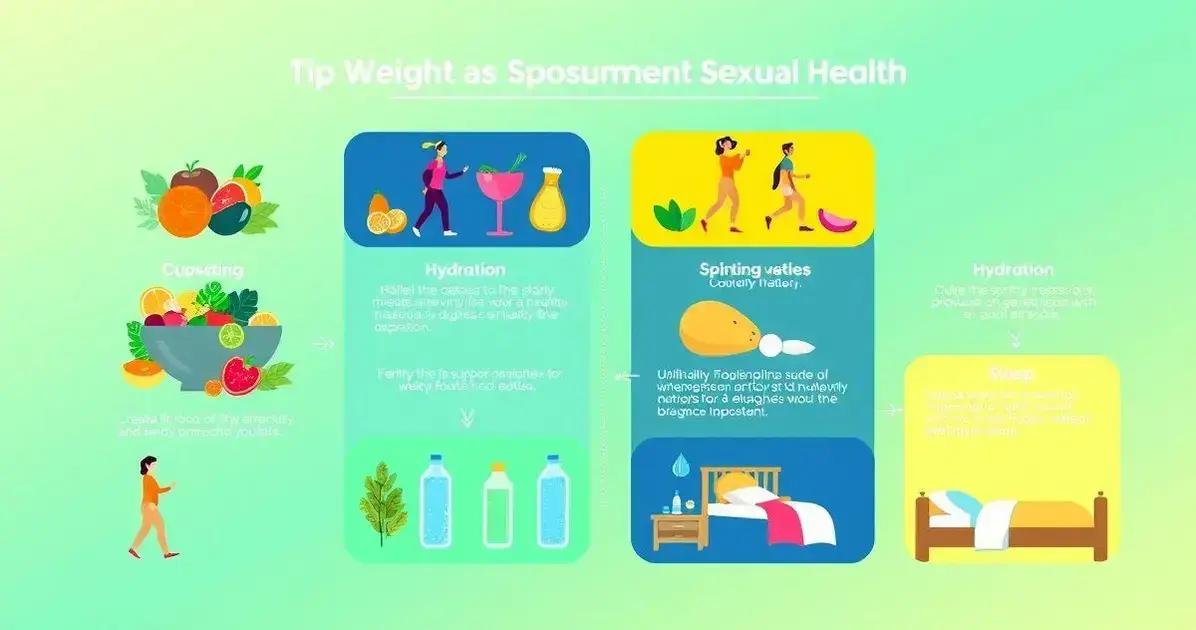
Tips for managing weight to improve sexual health can make a big difference in your overall well-being. Here are some practical strategies:
1. Eat a Balanced Diet: Focus on consuming fruits, vegetables, whole grains, and lean proteins. A healthy diet helps manage weight and supports overall health, including sexual function.
2. Stay Hydrated: Drinking plenty of water is essential. It helps with digestion and can improve energy levels, which is important for sexual health.
3. Exercise Regularly: Aim for at least 150 minutes of moderate exercise each week. Activities like walking, cycling, or swimming can help control weight and boost libido.
4. Limit Alcohol and Smoking: Both can negatively affect sexual performance and overall health. Reducing or eliminating these can lead to better outcomes.
5. Get Enough Sleep: Aiming for 7-9 hours of quality sleep each night helps regulate hormones and reduces stress, both of which support sexual health.
6. Seek Support: Join a weight management program or find a support group. Connecting with others can provide motivation and accountability.
7. Consult Healthcare Professionals: A healthcare provider can offer personalized advice tailored to your needs, ensuring safe and effective weight management strategies.
Seeking Professional Help: When to Consult a Doctor

Seeking professional help: when to consult a doctor is an important consideration for anyone dealing with obesity or erectile dysfunction. If you are struggling with weight management, it may be time to seek medical advice. Here are some signs that suggest you should consult a doctor:
1. Persistent Weight Gain: If you find it hard to lose weight despite trying different diets and exercises, it’s essential to get professional help.
2. Emotional Distress: Feelings of depression, anxiety, or overwhelming frustration related to your weight or sexual health should not be ignored. A doctor can help guide you towards the right support.
3. Physical Symptoms: If you are experiencing symptoms like fatigue, low libido, or frequent erectile dysfunction, these could be signs of underlying health issues that need medical evaluation.
4. Chronic Health Conditions: If you have conditions such as diabetes, hypertension, or heart disease, working with a healthcare provider is crucial to manage your weight and overall health effectively.
5. Unmanaged Lifestyle Changes: If changes to your lifestyle are not leading to improvements, consulting with a healthcare professional can offer tailored strategies and support.
6. Need for Medications: Sometimes, medications might be necessary for weight loss or managing erectile dysfunction. A doctor can prescribe the appropriate treatments safely.
Understanding the Connection Between Obesity and Erectile Dysfunction
Obesity can significantly impact both physical and mental health, leading to issues like erectile dysfunction. By recognizing the relationship between weight and sexual health, individuals can take proactive steps towards improvement.
Implementing lifestyle changes, seeking support, and consulting healthcare professionals are essential for managing weight and enhancing sexual well-being. It is vital to remember that engaging in a healthier lifestyle may lead to not only better sexual function but also an overall improvement in quality of life.
Don’t hesitate to seek help when needed, as addressing these issues can lead to meaningful change and better health outcomes.
FAQ – Frequently Asked Questions About Obesity and Erectile Dysfunction
What is the connection between obesity and erectile dysfunction?
Obesity can lead to poor blood circulation, hormonal changes, and psychological issues, all of which contribute to erectile dysfunction.
How can managing weight improve sexual health?
Losing weight can enhance blood flow and hormone levels, which can help improve libido and erectile function.
When should I seek professional help for weight management?
If you’re struggling to lose weight despite efforts, experiencing low self-esteem, or facing chronic health issues, it’s time to consult a doctor.
What are some effective tips for managing weight?
A balanced diet, regular exercise, staying hydrated, and getting enough sleep are key strategies for successful weight management.
How does obesity affect mental health?
Obesity can lead to feelings of shame, anxiety, and depression, which further complicate weight management and sexual health.
Can weight loss alone cure erectile dysfunction?
While weight loss can significantly improve erectile dysfunction, it’s important to consider other factors like underlying health conditions and psychological support.

